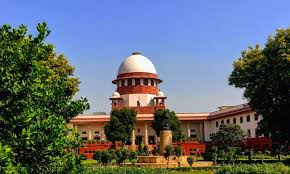‘Faith of common people is waning’: Supreme Court urges fast-track courts for trial of gangsters to curb delays

The Supreme Court of India has raised concerns over delays in the criminal justice system. It has called for fast-track courts to handle cases involving gangsters and organized crime. The court stressed that delayed trials erode public faith in the judiciary.
Public Trust in the Justice System
During a recent hearing, the Supreme Court noted that common people lose faith when justice takes years. The judges remarked that organized crime is thriving due to lengthy trials. Victims and their families often wait for years, creating frustration and despair. The bench reminded everyone that justice delayed is justice denied, stressing the need for quick legal action.
Fast-Track Courts: A Necessary Step
The court urged the creation of special fast-track courts for gangster-related crimes. These courts would ensure cases are resolved within strict deadlines. Unnecessary adjournments and procedural delays would be minimized.
The Supreme Court pointed out the success of fast-track courts in cases of sexual violence. A similar model for gangster cases could strengthen law and order.
The Growing Threat of Organized Crime
Organized crime groups, especially in certain states, continue to expand their networks. Crimes such as extortion, contract killings, and illegal land grabs are common. These gangs often enjoy political and financial support.
The judges warned that prolonged trials give criminals a sense of immunity. Witnesses face threats or are bribed, and evidence weakens over time. A faster trial process can break this cycle and deter criminals.
Judiciary’s Previous Concerns
The backlog of cases in India has worried the judiciary for years. Millions of cases are still pending in various courts. Criminal trials form a large part of this backlog.
In many states, gangster trials drag on for years or decades. The Supreme Court’s latest remarks underline the urgency for systemic reforms.
Role of Government and Authorities
The court urged both central and state governments to act quickly. It asked them to set up fast-track courts with proper infrastructure and manpower. Prosecutors and judges handling these courts must be well-trained.
Legal experts agree that fast-track courts need strong administrative and financial support. Without proper resources, such courts may not serve their purpose.
Impact on Ordinary People
Delayed justice hurts victims and their families the most. It also damages society’s trust in law and order. Seeing notorious criminals free for years discourages citizens from seeking justice.
The court believes swift trials will send a strong message to criminals. It will also rebuild public confidence in the legal system.
What Legal Experts Say
Many legal professionals welcomed the Supreme Court’s proposal. They believe fast-track courts can reduce the misuse of legal delays. Some suggest using modern technology like video conferencing for witness statements.
Digital evidence submissions and AI-based case tracking could also help speed up trials.
Need for Broader Reform
The court’s call is a reminder of the urgent need for judicial reform. Faster trials require better investigations, stronger prosecution, and efficient judicial appointments.
Experts argue that reforms must go beyond creating fast-track courts. Every step of the criminal justice process should be streamlined.
Conclusion
The Supreme Court’s push for fast-track gangster trials addresses a critical gap in the system. Quick and fair trials can curb organized crime and restore public faith.
Improving court infrastructure, adopting technology, and holding authorities accountable will be key. If implemented, these measures could change how India fights organized crime.






